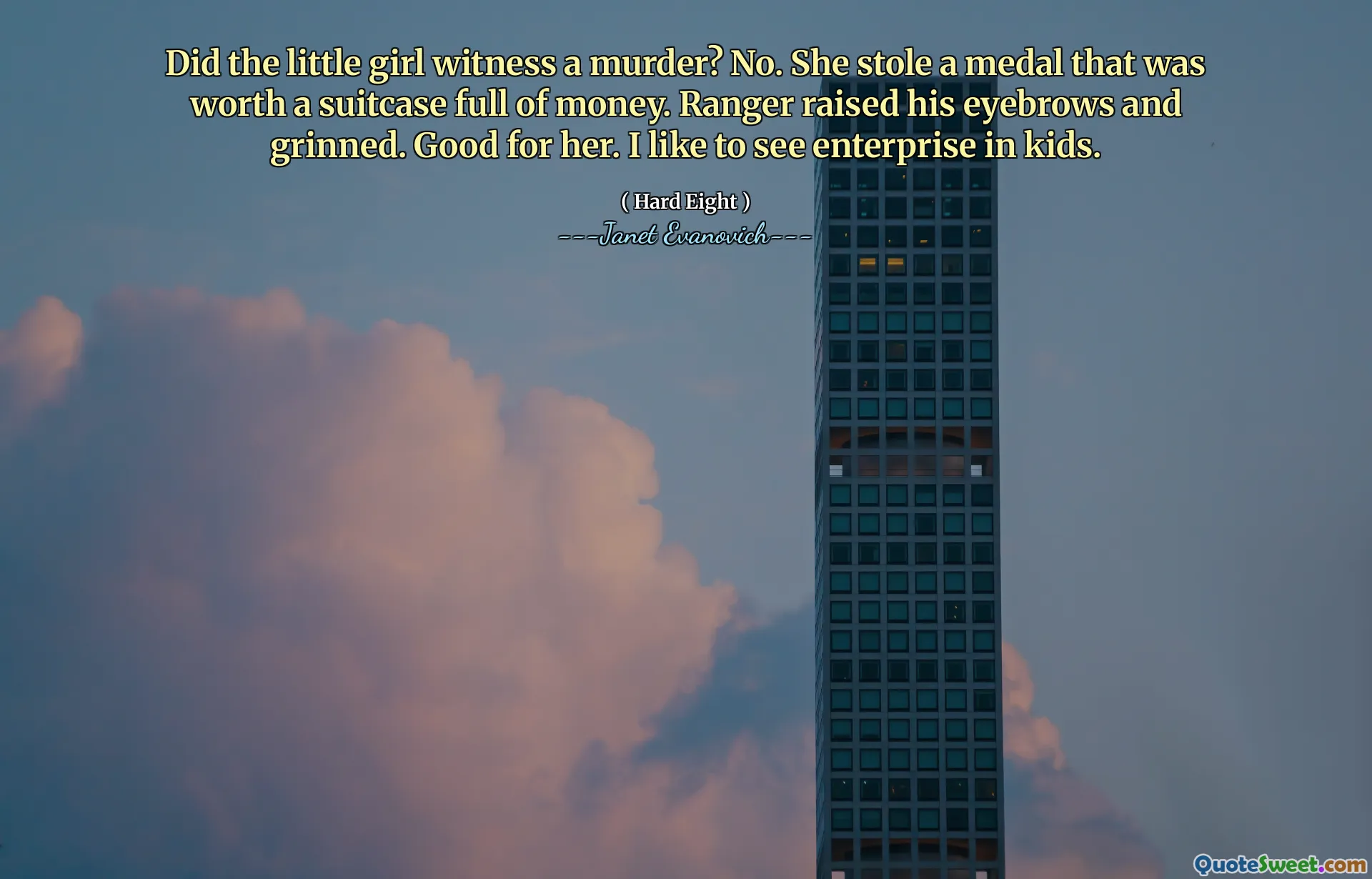
Did the little girl witness a murder? No. She stole a medal that was worth a suitcase full of money. Ranger raised his eyebrows and grinned. Good for her. I like to see enterprise in kids.
This quote paints a vivid picture of innocence intertwined with a hint of mischievous ingenuity. The conversation begins with a question about a potentially dark and serious event—a murder—implying concern or suspicion. The response, however, reveals a more playful and morally ambiguous reality: the girl’s actions were not driven by malice but by a desire for resourcefulness and entrepreneurial spirit. The phrase 'she stole a medal that was worth a suitcase full of money' suggests her cleverness and boldness, qualities often admired in children demonstrating independence and resourcefulness. Ranger's reaction, raising eyebrows and grinning, along with his comment 'Good for her. I like to see enterprise in kids,' emphasizes an appreciation of such traits. It raises an interesting discussion about morality, innocence, and how society perceives and values entrepreneurial spirit in childhood. Rather than condemning her theft, the scene celebrates her audacity and ingenuity, challenging traditional notions of right and wrong. This perspective fosters a broader reflection on the importance of nurturing creativity and problem-solving in young minds, sometimes even embracing unconventional methods if they demonstrate effort and cleverness. The quote echoes the idea that qualities like initiative, confidence, and resourcefulness in children should be recognized and encouraged. It also subtly hints at the complex nature of morality—sometimes the line between right and wrong can be blurred, and context can influence our judgments. Ultimately, this snapshot captures a worldview that prizes ingenuity and resilience, viewing such traits as vital components of a lively, enterprising spirit that should be cultivated from a young age.







